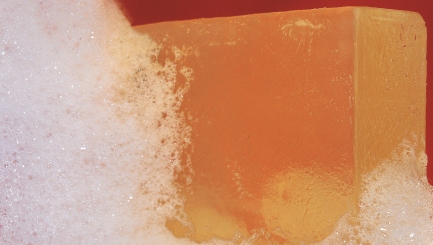Is Your Antibacterial Soap Doing More Harm Than Good?
 If you use antibacterial soap, or other products such as toothpaste, mouthwash, clothing, carpets, toys, in your home, you could be doing more harm than good to your family’s wellbeing. According to a new study, triclosan, which is the antibacterial substance commonly found in personal care products, could actually damage your heart and muscle wellness.
If you use antibacterial soap, or other products such as toothpaste, mouthwash, clothing, carpets, toys, in your home, you could be doing more harm than good to your family’s wellbeing. According to a new study, triclosan, which is the antibacterial substance commonly found in personal care products, could actually damage your heart and muscle wellness.
The new study from the the University of Colorado and the University of California, is not the first to highlight triclosan as a health hazard in the news. In 2010, researchers from the University Of Michigan School Of Public Health reported that triclosan adversely affects the immune systems of children, and that their findings ‘may support the “hygiene hypothesis,” which maintains living in very clean and hygienic environments may impact our exposure to microorganisms that are beneficial for the development of the immune system.’
For the most recent study, which is published in the Proceedings of the National Academy of Sciences, the team carried out three experiments on triclosan, using doses of the substance that people and animals could expect to be exposed to in daily life. In the lab, scientists exposed heart muscle cells and skeletal muscle fibres to triclosan, and the antibacterial chemical interfered with the normal communication between proteins. This meant that these cells and fibres could not respond properly, which led to skeletal and heart muscle failure. 20 minutes of exposure caused a 25% reduction in cardiac function in mice, and for up to an hour exposure to one dose of triclosan, the mice showed an 18% reduction in their grip strength.
Therefore, when it comes to family wellness, perhaps it’s time to rethink the use of products that contain triclosan. ‘In patients with underlying heart failure, triclosan could have significant effects because it is so widely used,’ warned study co-author Nipavan Chiamvimonvat, professor of cardiovascular medicine at UC Davis. However, he did admit that more research is needed.
According to a co-author of another study into this chemical, Bruce Hammock, professor in the UC Davis Department of Entomology, ‘Triclosan…has become a ubiquitous value added marketing factor that actually could be more harmful than helpful.’ Though the chemical is still approved by the FDA, if you’re concerned about the heart and muscle function of your family, read the labels and choose antibacterial products and other personal care items that do not contain triclosan.


Comments are closed.